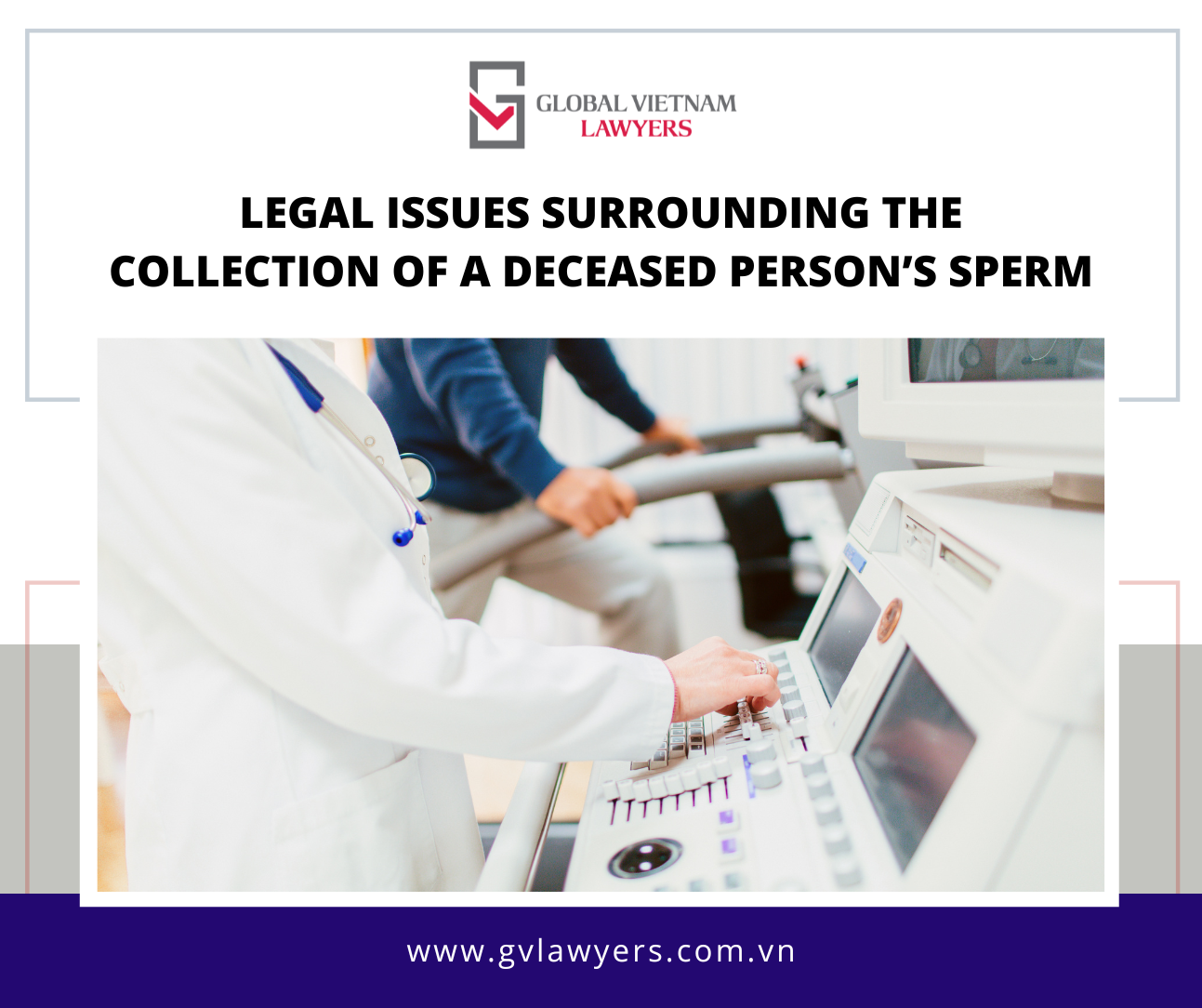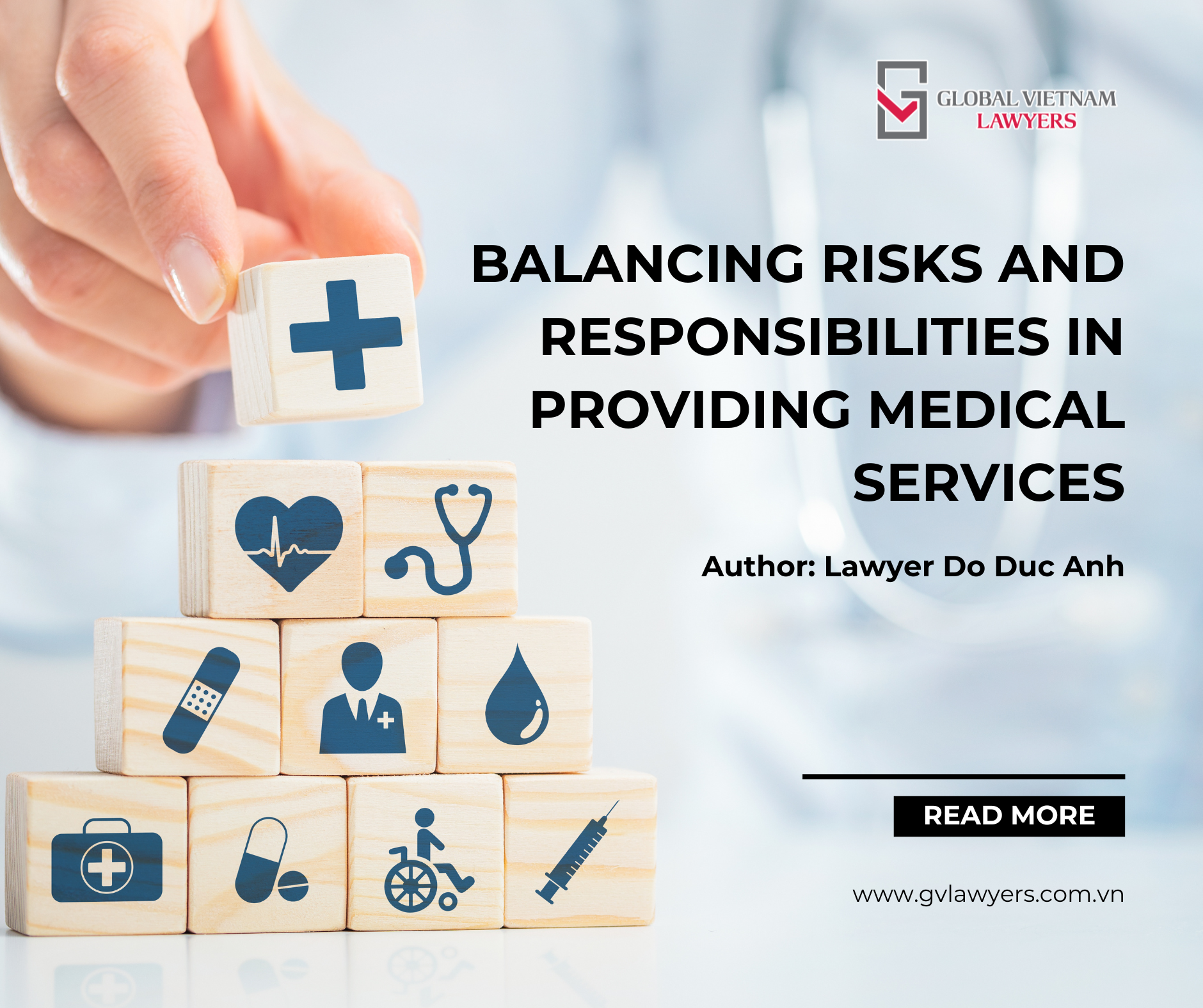The article by Lawyer Le Quang Vy and Ms. Nguyen Thi Hang titled “Legal issues surrounding the collection of a deceased person’s sperm” was posted on nguoiduatin.vn as of 30/12/2018.
***
The case where Ms. Vong Ngoc Huyen requested the receipt of her biological son’s sperm that is being stored at Tu Du hospital for her daughter-in-law’s in-vitro fertilization has raised multiple legal issues such as: may sperm be considered an asset? Does sperm belong to moral rights and can be inherited?
Law practice in a few countries
In this day and age, the fact that a wife can use her dead husband’s sperm for in-vitro fertilization and childbirth is no longer strange. Accordingly, the laws of many countries have had to catch to govern this issue, with differing results. In the United States of America, the country of freedom, wife can receive sperm from her dead husband to become pregnant, whilst the United Kingdom it is mostly the reverse.
The American Reproductive Health Association believes that sperm collection from the deceased is only approved if the requester is a spouse or partner of a deceased person and requires a memorial time before sperm can be used. Sperm collection may be done before or after the husband dies, and for the case of sperm collection after the husband’s death, the association also allows for, if a doctor or hospital is not comfortable doing this process, the transfer of dead bodies to other hospitals for other doctors to collect the sperm. The United Kingdom however does not allow any sperm collection from the dead except with their prior written permission. In cases where sperm has been removed before death, the sperm cannot be stored for more than 10 years without any written approval for extension.
In Queensland, Australia there was a case where a woman was denied the right to collect and preserve sperm after her husband died. The reason for some countries not to allow the storage and use of the deceased’s sperm for conception is because they believe that doing so will not guarantee the interests of the child at birth and the said action is only aimed at the interests and needs of “adults” without proper attention to how it will affect any child. This in itself affects the human rights of the child to be born.
How does Vietnamese law govern these issues?
The first birth from a dead husband’s sperm took place in 2013 in Vietnam. Specifically, the husband died three years earlier due to a traffic accident, and the wife immediately took sperm from his body for storage and use. It is quite a consummate ending when the wife used such stored sperm to give birth of a twin of healthy boys. For Ms Vong Ngoc Huyen’s recent case, her sole son passed away and before his death, with his sperm deposited at Tu Du hospital.
At the moment, Ms. Huyen wants to take back her son’s sperm for in-vitro fertilization of her daughter-in-law (her son and daughter-in-law only celebrated their wedding ceremony without having yet registered their marriage). Is Ms. Huyen’s request is in accordance with the law? In reference to Decree 10/2015/ND-CP stipulating the childbirth by means of in-vitro fertilization and the surrogacy for humanitarian purposes, “sperm” is defined as the male gamete, and sperm storage must be carried out as part of medical examination and treatment establishments that have performed in-vitro fertilization in order to store and preserve sperm for the implementation of in-vitro fertilization techniques. The person requesting storage will then sign a civil contract with the storage service provider (except for a donation) and pay a storage fee. In cases where a sperm depositor becomes deceased and the sperm storage establishment receives a notice attached to a copy of the legal death certificate from the depositor’s family, such depositor’s sperm must be destroyed, except for the case where such depositor’s spouse makes an application for further storage and maintains payment of the storage and preservation fee.
The wife may then use this sperm. Thus, Vietnamese law has made progress in the regulation on the use of the dead’s sperm. For Ms. Huyen’s case, although her son and her daughter-in-law actually celebrated a wedding, they had not yet been registered for marriage. Therefore, pursuant to the Law on Marriage and Family, they are not recognized by law as husband and wife. Therefore, Ms. Huyen’s daughter-in-law will not be eligible to decide on the continued storage and use of her late husband’s sperm. As regulated by law, Ms. Huyen falls out of the subjects who have the right to decide the storage and use of her son’s sperm at Tu Du Hospital.
Are sperm considered an asset to become the legacy of a deceased husband?
Article 612 of the 2015 Civil Code states that any estate includes the dead’s personal property and that which is in common possession with others. Article 105 of this Code also provides any property includes “objects, money, valuable papers and property rights”, which are movable or real property.
Like many countries in the world, the Vietnamese civil law divides assets into two categories: movable property and real property. As aforesaid, Decree 10/2015 defines sperm as men’s gametes, so are sperm considered an asset as stipulated by the Civil Code? If a person’s right to assets encompasses his obligations and rights (object related rights, man related rights, cognitive rights), then sperm will indicate an asset’s unrelated right because the asset’s unrelated rights belongs to the human essence, aiming to satisfy the spiritual needs beyond an economic nature. However, if it is assumed that sperm do not belong to the moral rights, this is inaccurate because moral rights are not transferrable – not allowed to buy, sell, give, or inherit (except for cases where any heirs have the right to protect the honour, dignity, prestige and integrity of the deceased’s works). Meanwhile, the law does not ban men from giving their sperm or a man has the right to leave his will giving sperm for his wife’s use.
Thus, from the perspective of legal science, sperm is not an asset, but may be viewed as a non-asset based interest whereby the subject is entitled to give or leave it in an inheritance will. However, because this is a type of rather special right concerning morality and humanity, the law needs to meet both the scientific and humane criteria.
In these days of science rapidly developing, the law is struggling to keep pace. In order to resolve the cases that happen in practice like Ms. Huyen’s said case, the law cannot be idle on these said issues. As society becomes disrupted, the law equally needs to update to provide consistency.
In our thinking, it is time for legislators to start talking about “the rights to sperm inheritance”.









